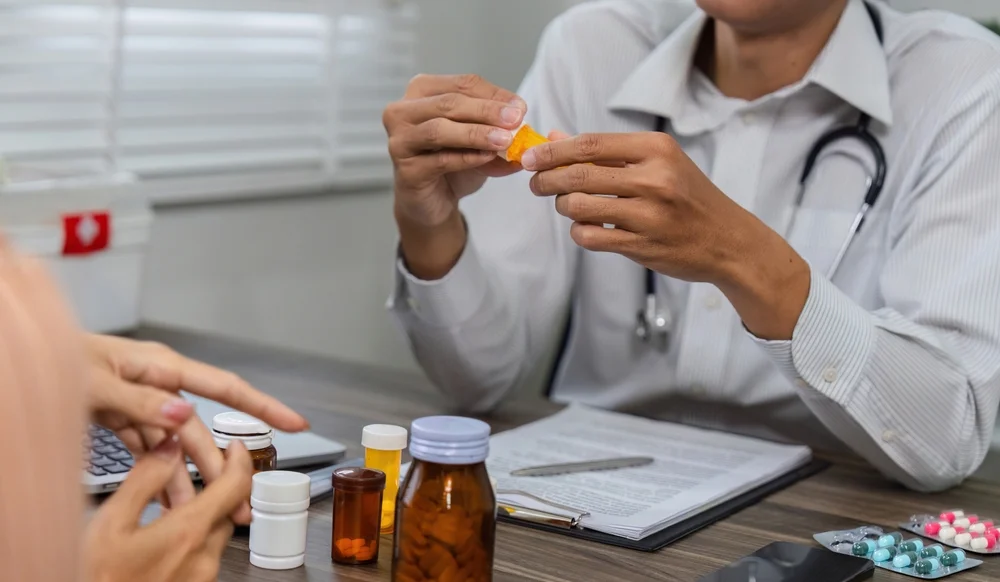Table of Contents
ToggleAdministering medication is a vital part of caregiving. Whether you’re a family member caring for a loved one, a professional carer, or a manager overseeing healthcare staff, mistakes can happen. Medications are complex, and even the most careful people can make an error. When a medication mistake occurs, it’s essential to know how to respond quickly and effectively. Understanding what to do in these situations can help prevent harm and ensure everyone stays safe.
This guide is for families, carers, and managers who may be responsible for administering medications. We’ll explain common medication errors, provide a step-by-step approach to what to do when mistakes happen, and offer tips on how to prevent errors in the future.
Common Medication Errors
Before we dive into what to do when medication goes wrong, it’s important to understand the common mistakes that can happen. These errors can occur in both home and healthcare settings, and they include:
- Incorrect Medication – Giving the wrong medication to the patient.
- Wrong Timing – Giving medication at the wrong time of day or outside the prescribed intervals.
- Wrong Dose – Administering too much or too little of a medication.
- Incorrect Route – Giving the medication by the wrong method (e.g., giving oral medication through an IV or vice versa).
- Wrong Patient – Giving medication to the wrong person, which can be especially concerning in shared care environments.
- Missed Dose – Forgetting to give a scheduled dose of medication.
- Double Dose – Giving the same dose of medication more than once due to confusion or a mistake in documentation.
- Pharmacy Errors – Receiving the wrong medication or dosage from the pharmacy.
- Medication Refusal – The patient refuses to take the medication, spits it out, or vomits after administration.
Recognizing these common medication errors can help carers and managers address the situation calmly and effectively if they occur.

What to Do When Medication Goes Wrong
Whether you’re a carer, a family member, or a manager, if you realize that a medication error has occurred, it’s important to act quickly. The following steps will guide you through the process of handling a medication mistake.
1. Stay Calm
It’s natural to feel worried or stressed when you realize that a mistake has been made, but staying calm is essential. Panic can cloud your judgment and make it harder to think clearly. Take a deep breath, and if needed, ask a colleague or family member for assistance. This will give you the space to think through the situation carefully.
2. Be Honest and Transparent
Honesty is crucial when medication errors happen. If you made a mistake, it’s important to admit it right away. Hiding an error can lead to more serious consequences, especially if the patient receives the wrong treatment. By being upfront about the mistake, you will be able to address it promptly and keep your loved one or patient safe. Everyone makes mistakes, and being honest allows you to correct it and move forward.
3. Seek Medical Advice
The next step is to determine if medical advice is needed. If the mistake could cause harm or if your loved one experiences unusual symptoms after taking the medication, it’s important to contact a doctor or healthcare professional right away. In case of emergency, don’t hesitate to call emergency services (such as 999 in the UK or 911 in the U.S.). For less serious situations, your healthcare provider or pharmacist can advise you on what to do next.
4. Document Everything
Documenting the error is essential for future reference. Make a written record of the following:
- The name of the medication involved
- The dosage administered or missed
- The time and date the mistake happened
- Any actions you took to fix the situation
- The advice you received from healthcare professionals
This record will be useful if you need to explain the situation to a manager, healthcare professional, or regulatory body later on. It also helps to track and understand the cause of the error.
5. Report the Incident
Once you’ve addressed the immediate situation, it’s time to report the incident. For family members or informal carers, this could mean talking to your doctor or a healthcare provider to let them know what happened. For professional carers or managers, it is essential to report the mistake to a supervisor or manager.
Managers should ensure that a formal investigation is carried out to understand why the error happened and to implement steps to prevent it from happening again. This may involve reviewing procedures or providing additional training to staff.
What Managers Should Do When Medication Errors Occur
For those in managerial roles, it’s important to take additional steps to investigate and resolve medication errors. The following steps will help managers handle the situation appropriately and ensure that all necessary actions are taken.
1. Investigate the Incident
As a manager, your first responsibility is to understand exactly what went wrong. Speak with the caregiver involved to gather all the facts. It may help to ask the caregiver to write a reflective account of the incident. This can provide insights into why the mistake happened and what could have been done differently.
Additionally, review the process that led to the error. Was it a breakdown in communication? Were there any distractions or stressors in the environment? Was the caregiver adequately trained? Identifying the root cause of the error will help prevent similar mistakes in the future.
2. Report the Error
If the error is significant, it’s important to report it to the necessary authorities. You may also need to inform the patient’s family or next of kin, especially if the error could affect their loved one’s health.
If you work in a healthcare facility, it’s also important to file an internal report, which can be used to track incidents and identify patterns. This information is valuable for improving procedures and preventing errors.
3. Prevent Future Errors
Once the investigation is complete, managers should take steps to prevent future medication errors. Some strategies include:
- Training and Education: Providing ongoing training and refresher courses to staff ensures they are up to date on medication administration procedures. This helps reduce errors caused by lack of knowledge or familiarity.
- Improving Medication Systems: Implementing medication management systems, such as electronic medication administration records (eMAR), can reduce the risk of errors by automating parts of the process and making it easier for staff to track doses.
- Regular Audits: Conduct regular audits to identify trends or recurring issues related to medication errors. This can help spot areas that need improvement.
- Creating a Culture of Openness: Encourage staff to report errors or near misses without fear of punishment. A culture of transparency helps prevent larger issues from developing and ensures everyone feels comfortable speaking up.

How to Prevent Medication Errors in the Future
While errors can happen, there are several steps you can take to reduce the likelihood of medication mistakes in the future. Here are some tips for both caregivers and managers:
1. Use a Medication Organizer
A medication organizer is a simple yet effective tool that can help caregivers and family members keep track of medications. Organizers typically have compartments for each day of the week or for specific doses. This can reduce the risk of giving the wrong medication or dose.
2. Set Medication Reminders
Using reminders is another easy way to prevent medication errors. Set alarms or use a medication reminder app to ensure that doses are taken at the right time. For those caring for multiple people or administering many medications, this is especially helpful.
3. Keep Clear Medication Records
Maintaining clear and accurate records of medication doses is essential. This will help ensure that the right medication is given at the right time. It also provides a reference if there’s any confusion or doubt.
4. Store Medications Properly
Proper medication storage is essential to prevent mix-ups. Store medications in a cool, dry place and label them clearly. Keep them in separate areas to avoid confusion, especially if multiple people are involved in administering the medication.
Handling Medication Mistakes with Confidence
Medication errors can be worrying, but knowing what to do when they happen can help minimize the risks and keep your loved one safe. Whether you are a family caregiver, a professional carer, or a manager, responding quickly, honestly, and calmly is key to resolving the situation effectively.
By using tools like medication organizers, setting reminders, and keeping clear records, you can reduce the chances of making errors in the first place. And if a mistake does happen, taking immediate action, documenting the incident, and reporting it will help prevent harm and improve safety in the future.
Remember, everyone makes mistakes. What matters most is how we handle them. By following these steps, you can ensure that you are doing everything you can to keep your loved ones or patients safe and well-cared for.






